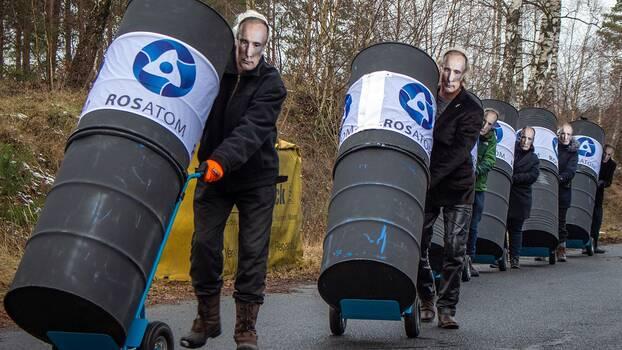Rosatom, Russia’s state nuclear energy corporation, has announced plans to construct Kazakhstan’s first-ever nuclear power plant, marking a significant milestone in the Central Asian nation’s energy sector. The project, unveiled in a recent statement covered by The Moscow Times, aims to diversify Kazakhstan’s energy sources and boost its electricity production capacity. As Kazakhstan seeks to reduce its reliance on fossil fuels and meet growing power demands, Rosatom’s involvement underscores deepening cooperation between the two countries in the field of nuclear technology.
Rosatom Secures Contract to Construct Kazakhstan’s Inaugural Nuclear Facility
Rosatom, the Russian state nuclear corporation, has officially secured a pivotal contract to design and build Kazakhstan’s very first nuclear power plant. This landmark project marks a significant milestone in Kazakhstan’s energy sector, aiming to diversify the country’s power generation mix and reduce its dependence on fossil fuels. The new facility will leverage cutting-edge pressurized water reactor technology, promising enhanced safety and efficiency standards aligned with global best practices.
Key aspects of the project include:
- Location: Near Lake Balkhash, an area chosen for strategic access to cooling resources.
- Capacity: A planned output of 1200 MW, sufficient to power nearly 1.5 million homes.
- Timeline: Construction is expected to begin in 2026 with commercial operations targeted by 2033.
- Economic Impact: Job creation during and after construction, technology transfer, and regional development opportunities.
| Project Element | Details |
|---|---|
| Contract Value | $5 billion |
| Reactor Type | VVER-1200 |
| Expected Lifespan | 60 years |
| Environmental Goal | Reduce CO2 emissions by 15 million tons annually |
Strategic Implications of Kazakhstan’s Nuclear Energy Expansion for Regional Stability
Kazakhstan’s move to develop its first nuclear power plant with Russian state corporation Rosatom signals a significant shift in the Central Asian energy landscape. This collaboration is poised to alter regional power dynamics by amplifying Kazakhstan’s energy independence and reinforcing its role as a strategic player. As the country diversifies its energy portfolio away from fossil fuels, its growing nuclear capabilities could foster closer bilateral ties with Russia while simultaneously raising concerns among neighboring states wary of expanded nuclear presence near their borders. This development underscores a nuanced balancing act between advancing national interests and sustaining regional security cooperation.
Several critical factors define the broader impact on stability in Central Asia:
- Energy Security: Kazakhstan’s nuclear project aims to address increasing electricity demands and reduce fossil fuel dependency, potentially stabilizing regional energy markets.
- Geopolitical Influence: Russia’s involvement through Rosatom expands its strategic footprint, reaffirming Moscow’s influence over critical infrastructure in the post-Soviet space.
- Non-Proliferation Concerns: Neighboring countries and international observers will scrutinize the project’s adherence to safeguards to prevent any military diversion of nuclear material.
- Regional Collaboration: The initiative may catalyze dialogues among Central Asian states on shared energy challenges and infrastructure security.
| Implication | Potential Outcome | |||
|---|---|---|---|---|
| Energy Independence | Reduced reliance on Russian gas imports, stronger domestic grid | |||
| Russian-Geopolitical Leverage | Enhanced diplomatic channels and influence in Central Asia | |||
Kazakhstan’s move to develop its first nuclear power plant with Russian state corporation Rosatom signals a significant shift in the Central Asian energy landscape. This collaboration is poised to alter regional power dynamics by amplifying Kazakhstan’s energy independence and reinforcing its role as a strategic player. As the country diversifies its energy portfolio away from fossil fuels, its growing nuclear capabilities could foster closer bilateral ties with Russia while simultaneously raising concerns among neighboring states wary of expanded nuclear presence near their borders. This development underscores a nuanced balancing act between advancing national interests and sustaining regional security cooperation. Several critical factors define the broader impact on stability in Central Asia:
|
















